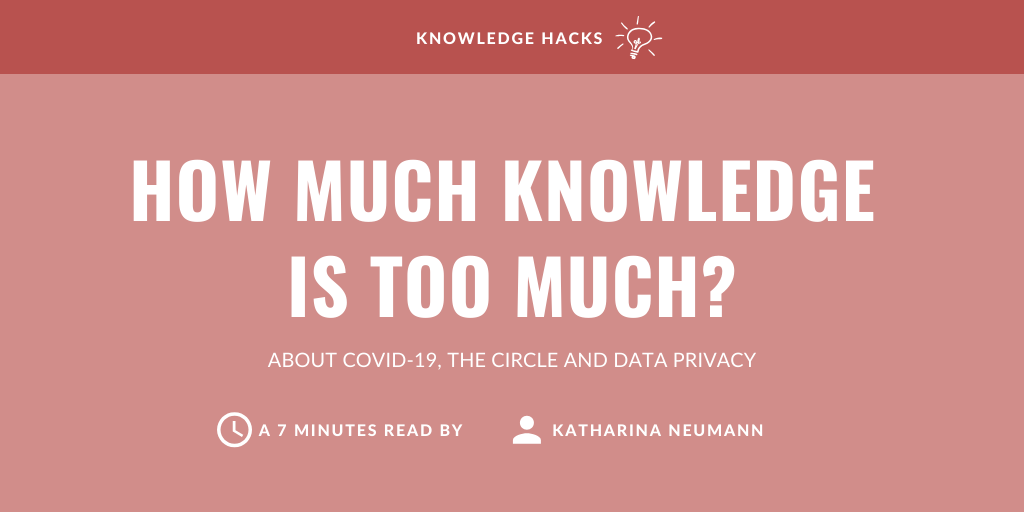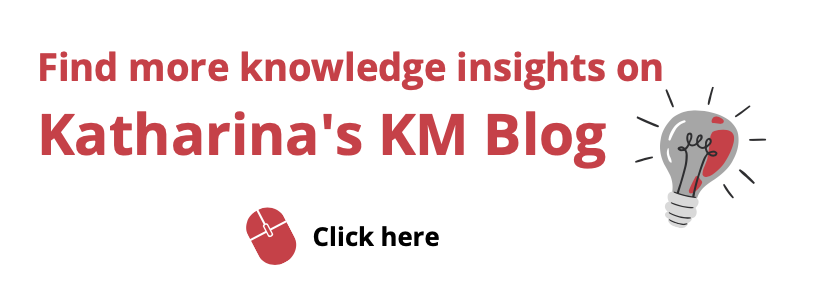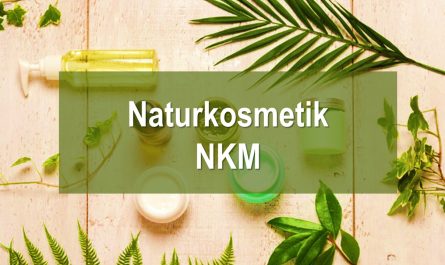If you didn’t get a print out of today’s article, I guess 100% of you are reading the following text online: either via your smartphone, laptop or any other digital device. And as you click through the Major OBM Blog, scroll over this page or even comment, you leave a digital footprint. By the way, did we offer you our cookies yet?
Today we will dedicate our attention toward the questions: How much knowledge is too much? And how does data help to fight global diseases?

When the DSGVO was initiated by the EU in 2018 and companies are now more accountable for the use of personal data, the film The Circle became more topical than ever. Ok, my fellow film critics, it may not be the greatest movie of all times (personal judgment – what do you think?) but The Circle shows a dystopian image of our wireless world, where tech-giants don’t stop until they know every single detail about everything and every one of us.
THE CIRCLE – SUMMARY OF THE PLOT
If you didn’t have the chance to watch the movie, yet – let me give you a short summary of the plot: Mae Holland (Emma Watson), a young woman from Longfield, California secures a customer support position at one of the most powerful tech and social media companies ‘The Circle’. The Circle’s mission is to unite all internet activities of the users under one roof and thereby creating complete transparency (Welcome to Silicon Valley!). At a company meeting, CEO Eamon Baily (Tom Hanks) introduces SeeChange, a new project which uses small cameras places anywhere to provide real-time high-quality video footage. Mae is immediately enthusiastic about this visionary approach and rises quickly within the company by embracing the social networking. She becomes the first Circle employee wearing a SeeChange camera 24/7 – complete transparency. But that’s not enough: the Circle continues to grow by announcing a program that can locate criminals or any person in the world in under 20 minutes. All these actions towards increasing transparency damage Mae’s relationship to her parents and her friends. What happens next? Well, I think that you got the idea of the movie. If you want to know the ending, I recommend watching it yourself. #nospoiler
One of the key quotes from The Circle goes as follows:

Knowing everything is better. Think about this for a minute. The Circle represents all the tech-giants like Google, Apple, Facebook (incl. Instagram and WhatsApp), PayPal, Twitter and lots of other services every one of us has installed on their smartphones right now. If you remember Google+ the idea to connect all services into one single tool might sound familiar to you. In the real world, the project hasn’t worked out, but who knows what’s yet to come?
DATA CREATED IN ONE DAY
You probably have heard about kilobytes, megabytes, gigabytes or terabytes – data units that quantify what everyone of us leaves as data traces on the world wide web. According to World Economic Forum (Desjardins, 2019) a day in data looks as follows:
Social media platform, online shops or just simply blogs like this one are paradises for companies when it comes to data. As you can see from watching the short video, the amounts of data created in one day are mind-blowing and can either be used for good or bad.
DATA USED TO FIGHT GLOBAL DISEASES LIKE COVID-19
In The Circle data provided by users through the social media platform TrueYou is used to check on people’s health status and even helps Mae’s father Vinnie Holland who suffers from multiple sclerosis to finally get access to good health care. Great and spooky at the same time, isn’t it? However, this is not just fiction. Covid-19, a threat which influences every single person’s life, constitutes a real-life example of using data generated by mobile devices. Tech giants Facebook and Google are currently negotiating with the U.S. government to join forces in order to help tracking the spread of the coronavirus with phone location data. The aggregated, anonymized data should serve the purpose of population density mapping i.e. determining the impact of social distancing and tracking if people stay home and keep their distance from peers. This will enable researchers to forecast the transmission curve of COVID-19.
Facebook alone collects data from its nearly 2,5 billion monthly active users and the approach to using personal user data to fight diseases is not a new one. In 2017, Facebook has started its Data for good program and has already created disease prevention maps for illnesses such as the flu.
But not only Facebook became active in the fight against the global pandemic. Google regularly publishes Mobility Reports on Covid-19 and has announced a new tracking app in partnership with Apple, which allows users to share data through Bluetooth Low Energy (BLE) transmissions and approved apps from health organizations.
![]() Corona Virus Tracking System by Apple and Google, source: The Verge
Corona Virus Tracking System by Apple and Google, source: The Verge
The question is, will this approach really help to save people’s lives? And are we willing to disclose personal data for this purpose? I would love to hear your opinion about it. Let me know in the comments section below.
Personally, I believe that technology is a double-edged sword which delivers improvements for society and individuals on the one hand, but intrudes our privacy on the other. Therefore, coming back to the Building Blocks of Knowledge Management model, which I have presented in one of my previous blog posts, I believe that not everyone needs to know everything and companies should carefully select who has access to which kind of data. This is also true for individuals, sharing user-created content on their social media platforms such as Instagram, Facebook or nowadays TikTok.
That’s it for this weeks’ Knowledge Wednesday. I hope you enjoyed reading about how knowledge management can support the fight against COVID-19.
Bibliography
Brandom, R., & Robertson, A. (2020). Apple and Google are building a coronavirus tracking system into iOS and Android. Retrieved 12 April 2020, from https://www.theverge.com/2020/4/10/21216484/google-apple-coronavirus-contract-tracing-bluetooth-location-tracking-data-app
Desjardins, J. (2019). How much data is generated each day?. Retrieved 10 April 2020, from https://www.weforum.org/agenda/2019/04/how-much-data-is-generated-each-day-cf4bddf29f/
Filmstarts. (2020). The Circle: Kinoposter [Image]. Retrieved from http://www.filmstarts.de/kritiken/234164/bilder/?cmediafile=21366915
Martin, N. (2019). How Much Data Is Collected Every Minute Of The Day. Retrieved 10 April 2020, from https://www.forbes.com/sites/nicolemartin1/2019/08/07/how-much-data-is-collected-every-minute-of-the-day/#1a42082e3d66
Romm, T., Dwoskin, E., & Timberg, C. (2020). U.S. government, tech industry discussing ways to use smartphone location data to combat coronavirus. Retrieved 12 April 2020, from https://www.washingtonpost.com/technology/2020/03/17/white-house-location-data-coronavirus/
Schultz, J. (2019). How Much Data is Created on the Internet Each Day? | Micro Focus Blog. Retrieved 10 April 2020, from https://blog.microfocus.com/how-much-data-is-created-on-the-internet-each-day/
Thompson, C. (2017). If you’re reading about “The Circle” on Facebook, it’s already too late. Retrieved 12 April 2020, from https://www.motherjones.com/media/2017/04/circle-movie-film-dave-eggers-james-ponsoldt-clive-thompson/





Hello Katharina,
As usual, great blog post. Maybe my favorite so far. It was well-explained and using the example of this movie was clever, even if I have not yet watched it. Also really liked the short video in the middle! Also getting insights on COVID-19 was super relevant.
Personally, I do not care much about my data being used to improve technology. Maybe because I don’t see any delicate info that could be used against me. If I had different activities, or suffered from particular health issues I maybe would think otherwise, who knows.
Take care,
Thanks for your feedback, Juliette. Glad you liked the blog post and shared your personal opinion on data privacy. I would love to know how much these companies actually know about me. Hope to welcome you again on the blog for another knowledge wednesday! 🙂
Hi Katharina, really interesting post! 🙂 Especially the insight on COVID-19. I recently read that AI could help to solve the crisis in terms of understanding the spread of the virus, predicting where medical supplies will be needed and so on, but of course, data are needed. I personally would not mind sharing my data in order to make the health system more efficient and to quickly stop the spreading of global diseases!
Hi Margherita, many thanks for your positive feedback. As an AI expert you probably even know more about this topic than I do! 🙂
Hello Katharina,
Again a great story. A relevant theme in our time.
And true story.
Regards
Thank you! 🙂
Great post Katharina,
However, these kinds of posts always make me feel uncomfortable, as at some point we will have no voice in who has access to our data and what big companies can know about us and use that knowledge to manipulate us.
I liked your analogy about the double-edged sword, I agree with you. Unless you don’t use any devices nor use anything electronic, it is especially hard to keep control over your information, and third parties tend not to think of individuals’ privacy when they are trying to fight for a bigger cause so we are in a very vulnerable situation. scary
Hi Eszter, thanks for sharing your insights – totally agree. Probably would be shocking to know how much big corporations actually know about us. Let’s hope most of them will use our data responsibly and for the good.
Hello Katharina,
very interesting post on an important topic. As you explained, collecting, analyzing and using data offers exceptional perspectives for companies as well as governments. I assume especially in health related issues people are willing to share their personal data, because there is the higher aim to help or protect others. Nevertheless it always should be on a voluntary basis and it always should be a choice whether or not personal data can be used.
Regards
Hi Felix, thanks for your positive feedback and insights on data sharing behaviour. I really like the voluntary approach – very important! Hope to welcome you back on the blog soon! 🙂
Thanks for the blog which touches a lot of different aspects. Tech giants, healthcare-data and the main question: Should there be one instance that should know everything? I think everytime we realize that there is someone that is capable of connecting not only a few, but most of the dots, we understand that this becomes a big risk.
Thinking about what happened in DDR and quickly moving on to Google which is not only offering data, working with it, but also selling it. The same can go for a public institution thinking now about the COVID-19 apps in discussion.
My point is: Don’t let one single entity control every aspect of the data flow you describes. Until then we can greatly benefit and use data to enhance our lifes. So many use-cases have been just created because we have big-data-platforms. And in case you want to contribute more, checkout Folding@home or Boinc where you can dedicate your own CPU cycles to even anylze data for good.
Thanks for sharing these insights, Kilian! I enjoyed reading your comment and indeed, having one system which controls everything can be quite dangerous. Luckily, we are not there (yet). Also, I will definitely check out your recommendations. Looking forward to welcoming you back on the blog soon! 🙂
Thanks again
I like this topic. I belive giving your personal data, if it is not too personal stuff, for a good purpose is something good. If you can help others, by giving anonymous data this is fine. Its not fine if it is your personal private data. Thats something that should still be protected.
Best sandro
Indeed, thanks for sharing your opinion, Sandro! I also believe that if it is for the greater good I am willing to share not-sensitive data.
Hey Katharina
Your blog is really interesting and I’m definitively going to watch the movie “The Circle” soon.
Thanks for your opinion about that topic and I’m looking forward to read further blog’s from you.
Hi Michèle, many thanks for your feedback, I can definitely recommend watching the movie. Looking forward to welcoming you back on my blog, soon! 🙂